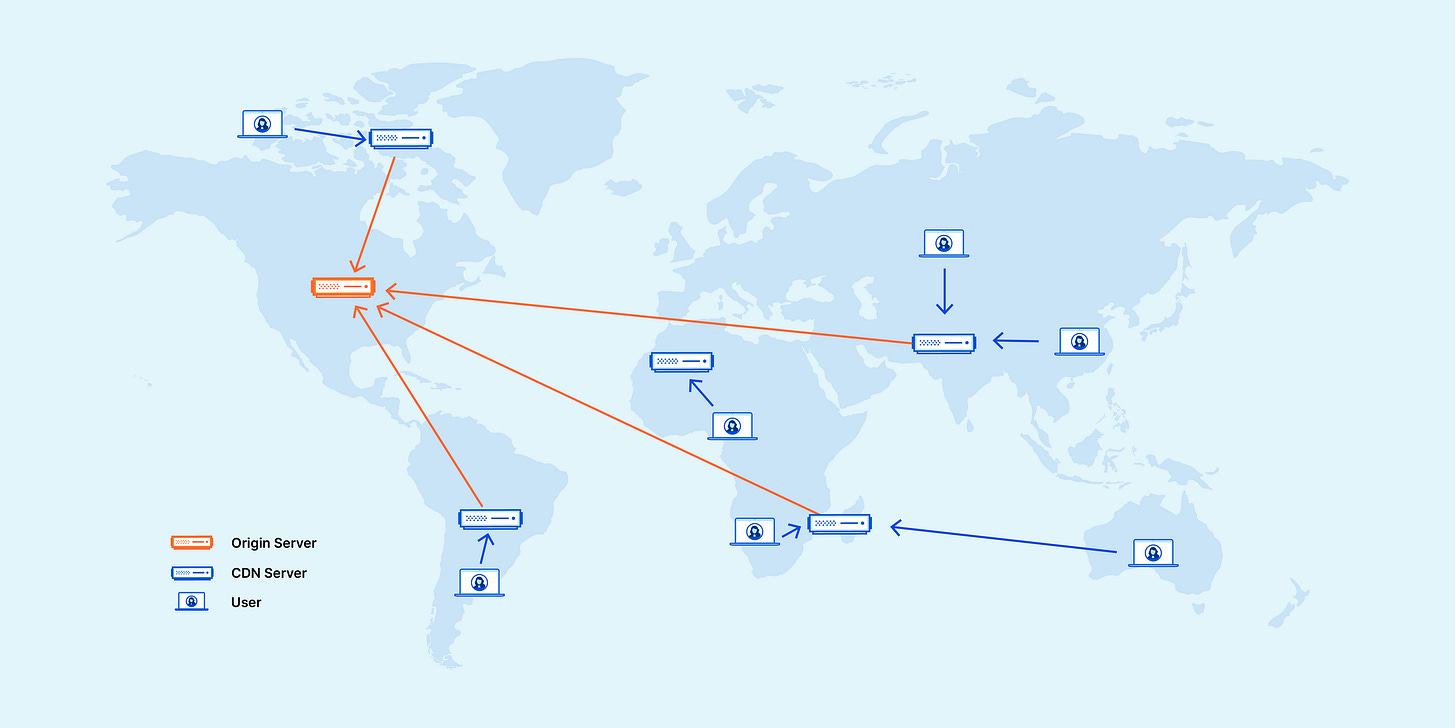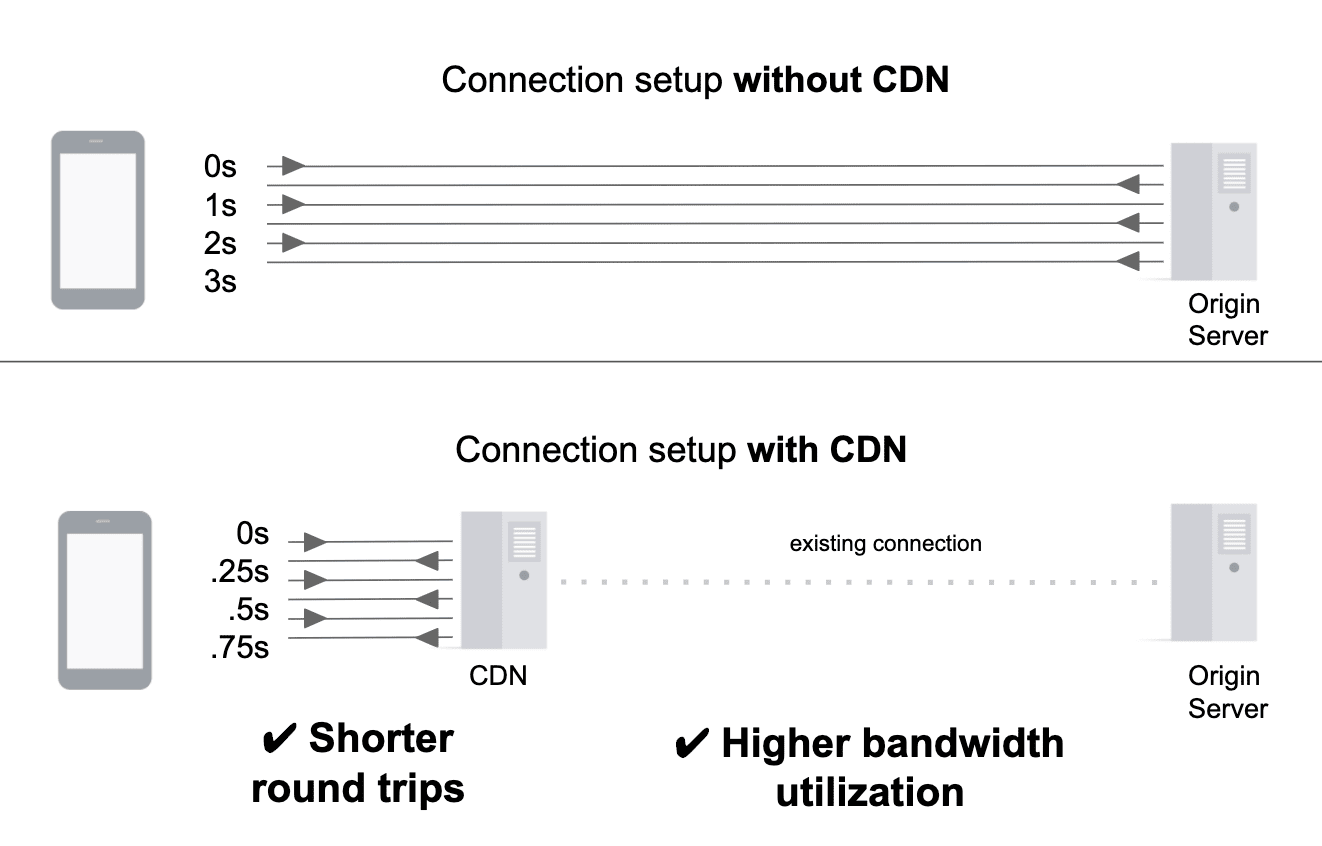The Magic of CDNs: How They Help Websites Go Zoom!
#2 Web Performance: Revealing the Mysteries of Content Delivery Networks
Hey there, friends! Today, we're going to talk about something super cool that makes websites work faster and better. Let's find out about CDNs together! Consider sharing this post with someone who wants to study.
In the fast-paced digital landscape, website performance is a make-or-break factor for user engagement. Enter Content Delivery Networks (CDNs), a game-changing solution that has become the backbone of delivering seamless online experiences. In this article, we'll explore what CDNs are, how they work, and the myriad benefits they bring to the table.
Understanding CDNs
A CDN is essentially a globally distributed network of servers strategically placed to cache content close to end-users.
The primary goal? To facilitate swift content transfer, enhance the loading speed of internet content, from HTML pages and JavaScript files to images and videos.
Major online giants such as Facebook, Netflix, and Amazon leverage CDNs to manage the bulk of their website traffic. Beyond speed, CDNs offer a line of defense against malicious attacks, including the notorious Distributed Denial of Service (DDoS) attacks.
CDN vs. Web Host: Bridging the Gap
While a CDN doesn't host content like a traditional web host, it plays a crucial role in augmenting website performance. By caching content at the network edge, CDNs alleviate common performance issues associated with traditional hosting services. They act as a complementary force, enhancing security, reducing bandwidth costs, and preventing service interruptions.
Key Benefits of CDNs
For users, the advantages of CDNs can be distilled into four core components:
Improved Website Load Times: CDNs, by distributing content closer to users, significantly enhance page loading times. A faster website translates to reduced bounce rates and increased visitor retention.
Reduced Bandwidth Costs: With smart caching and optimization techniques, CDNs minimize data transfer from the origin server, thereby cutting down on hosting costs for website owners.
Increased Content Availability and Redundancy: CDNs, with their distributed nature, can handle high traffic volumes and hardware failures more effectively than traditional servers.
Enhanced Website Security: Beyond speed, CDNs contribute to improved security by offering DDoS mitigation, enhanced security certificates, and other optimizations.
How CDNs Work Their Magic
At its core, a CDN is a network of interconnected servers aimed at delivering content swiftly, reliably, and securely. By strategically placing servers at Internet exchange points, CDNs optimize speed and connectivity. Additionally, they implement various optimizations, including efficient load balancing, solid-state hard drives, and global distribution of data centers, all geared towards reducing latency.
Reliability, Redundancy, and Uptime
For website owners, uptime is non-negotiable. CDNs ensure reliability through features like load balancing, intelligent failover, and Anycast routing. These mechanisms distribute traffic evenly, provide uninterrupted service during server failures, and seamlessly transfer traffic to alternative data centers in case of technical issues.
Data Security: A Top Priority
Security is paramount in the digital realm. CDNs bolster website security by maintaining fresh TLS/SSL certificates and ensuring robust authentication, encryption, and data integrity. It's a comprehensive approach to safeguarding sensitive information.
Cost-Efficiency: A Win-Win Situation
Bandwidth costs can be a significant financial burden for website owners. CDNs, as exemplified by the likes of Cloudflare, optimize origin requests, effectively reducing bandwidth consumption and alleviating associated expenses.
Conclusion
CDNs have become indispensable in the world of online content delivery, offering a potent combination of speed, reliability, security, and cost-efficiency. As the digital landscape evolves, harnessing the power of CDNs will continue to be a strategic move for businesses and website owners alike.






